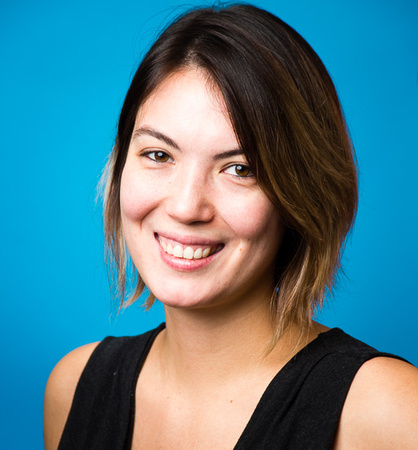America Needs You is a nonprofit aimed at increasing graduation rates and improving economic mobility for first-generation students by providing one-on-one mentorship, counseling and other services. ANY’s methods work. First-generation students who are fellows of ANY’s programs graduate at a rate of 94 percent, and last year, 82 percent of fellows landed a job or enrolled in graduate school within six months of graduation.
A graduate of Harvard, CEO Marianna Tu is the child of a Chinese immigrant, a professor who came to the US for graduate work. She began her association with ANY as a mentor coach, working one-on-one with a fellow. Tu previously had been the New York Executive Director of health education nonprofit Peer Health Exchange, marshaling college-age volunteers to teach high school students. She came to work fulltime with ANY in 2012 as Vice President of Career Development and moved up through other positions, including COO, before being named CEO in 2018.
Founded in 2009 by Robert Reffkin, a former appointee to the NYC Workforce Investment Board and two-time appointee to the NYC Board of Education Panel for Educational Policy, ANY began as a service for New York students and has since expanded to include three other states: New Jersey, California and Illinois. And it continues to grow.
We spoke with Marianna about the organization’s work, its relationships with its corporate partners, and what role good mentorship should play in academia and the business world.
What are the challenges that first-generation students might face that would cause them to leave school?
Everyone who starts college intends to finish. Many people who leave are planning on taking just a little bit of time off—but then they don’t go back. That’s often what happens. Many, many students are leaving college in good academic standing, so it’s not just about academic support.
The most common reason I think is immediate financial need or the lack of seeing a strong pathway to economic mobility and career success. There’s a trade-off of spending more time and money, going to school or working this job that’s right here at my fingertips, providing income that’s important to me and my family right now, even though it might not have the longer-term career trajectory or economic mobility.
In college, you never really talk about the connection between what you’re studying and what you might want to do later. In some institutions, it’s actually considered crass. Like, we are here for this learning environment and to talk about how much money you’re going to make is not the point of higher ed. I don’t think it needs to be an either/or.
There’s also a lot of research around the different ways people explain challenge to themselves based on different identity factors or the environment that they’re in. Resilience is how we explain and experience challenges and bounce back from them or not. I don’t think we can just put that on the person. I think companies and higher ed institutions can help normalize and talk about what you do if you’re experiencing a challenge.
ANY has begun operations in three other states besides New York and has a very high success rate: 94 percent of those in your program graduate, compared to 11 percent of first-gen students otherwise. What do you see are the next steps for your organization?
What we’ve seen through replicating to four sites is there is a need for mentorship career development and college support across the country—in rural areas, in urban areas. Connecting the college experience to what you might do after college isn’t as strong as it could be. All cities and higher ed institutions should have mentoring programs and should be talking explicitly about career. And I think ANY can play a part in helping that.
We grew pretty quickly—every two years we basically opened a new site. But a couple of years ago we said, “Let's try to grow more within these current markets and really deepen our relationships.” And that’s been great. Now not only have we served 2,000 students since inception, but instead of having a cohort of 50 students in New York, now we have 350 students.
Having to go to virtual programming this past year as a result of COVID means that we’ve had to develop a virtual curriculum. Right now, we’re in the process of professionalizing that virtual curriculum, making some really strong eLearning modules which we think actually will allow us to access students that aren’t in a current ANY market.
In the end, I think everything is going to end up being hybrid. We say, “Is it in-person or virtual?” I think the world will be hybrid, forever moving forward. But we still have to provide that human connection, through networking events or some other in-person aspects.
What has ramped up a ton though is the personal support piece. It’s been incredibly challenging for everyone, and certainly for our fellows. So we’ve focused on emergency financial assistance and really revving up personal support.

